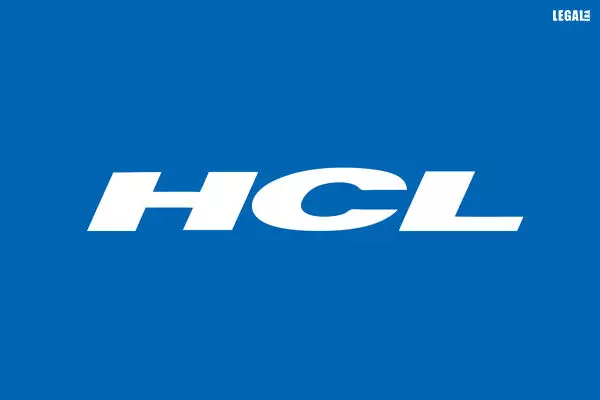- Home
- News
- Articles+
- Aerospace
- AI
- Agriculture
- Alternate Dispute Resolution
- Arbitration & Mediation
- Banking and Finance
- Bankruptcy
- Book Review
- Bribery & Corruption
- Commercial Litigation
- Competition Law
- Conference Reports
- Consumer Products
- Contract
- Corporate Governance
- Corporate Law
- Covid-19
- Cryptocurrency
- Cybersecurity
- Data Protection
- Defence
- Digital Economy
- E-commerce
- Employment Law
- Energy and Natural Resources
- Entertainment and Sports Law
- Environmental Law
- ESG
- FDI
- Food and Beverage
- Gaming
- Health Care
- IBC Diaries
- In Focus
- Inclusion & Diversity
- Insurance Law
- Intellectual Property
- International Law
- IP & Tech Era
- Know the Law
- Labour Laws
- Law & Policy and Regulation
- Litigation
- Litigation Funding
- Manufacturing
- Mergers & Acquisitions
- NFTs
- Privacy
- Private Equity
- Project Finance
- Real Estate
- Risk and Compliance
- Student Corner
- Take On Board
- Tax
- Technology Media and Telecom
- Tributes
- Viewpoint
- Zoom In
- Law Firms
- In-House
- Rankings
- E-Magazine
- Legal Era TV
- Events
- News
- Articles
- Aerospace
- AI
- Agriculture
- Alternate Dispute Resolution
- Arbitration & Mediation
- Banking and Finance
- Bankruptcy
- Book Review
- Bribery & Corruption
- Commercial Litigation
- Competition Law
- Conference Reports
- Consumer Products
- Contract
- Corporate Governance
- Corporate Law
- Covid-19
- Cryptocurrency
- Cybersecurity
- Data Protection
- Defence
- Digital Economy
- E-commerce
- Employment Law
- Energy and Natural Resources
- Entertainment and Sports Law
- Environmental Law
- ESG
- FDI
- Food and Beverage
- Gaming
- Health Care
- IBC Diaries
- In Focus
- Inclusion & Diversity
- Insurance Law
- Intellectual Property
- International Law
- IP & Tech Era
- Know the Law
- Labour Laws
- Law & Policy and Regulation
- Litigation
- Litigation Funding
- Manufacturing
- Mergers & Acquisitions
- NFTs
- Privacy
- Private Equity
- Project Finance
- Real Estate
- Risk and Compliance
- Student Corner
- Take On Board
- Tax
- Technology Media and Telecom
- Tributes
- Viewpoint
- Zoom In
- Law Firms
- In-House
- Rankings
- E-Magazine
- Legal Era TV
- Events
NCLAT rejects Insolvency process against HCL

NCLAT rejects Insolvency process against HCL
It ruled the OC initiated the proceedings to establish its claim of minimum guarantee amount that the technology firm never accepted
The National Company Law Appellate Tribunal (NCLAT) has set aside the Corporate Insolvency Resolution Process (CIRP) initiated against HCL Technologies, an Indian multinational information and technology services and consulting company.
The bench comprising Judicial Member Justice Ashok Bhushan and Technical Members Shreesha Merla and Naresh Salecha allowed the appeal filed by the suspended director of HCL.
Early this year, the NCLT Bench-II, New Delhi, admitted the insolvency petition filed by an Operational Creditor (OC) under the Insolvency and Bankruptcy Code (IBC), 2016 against HCL for a debt of Rs.3.54 crores.
Earlier, NCLAT, while issuing a notice in the appeal filed by the suspended director of HCL, had stayed the admission order of NCLT.
The case goes back to November 2015, when HCL entered into an agreement with Sahaj Bharti Travels for the provision of pick up and drop cabs for its personnel. HCL further extended the agreement till December 2018. As per the terms of the agreement, invoices were required to be raised by the OC within 60 days of the services being delivered or billed.
The agreement mentioned that in case the cabs do not run for a minimum of 7000 km, a minimum guarantee amount would be payable by HCL to OC.
Thereafter, vide its May 2018 email, the OC requested payment of a minimum guarantee amount, and a meeting was held between HCL and OC. But vide its November 2018 email, HCL informed the OC that no amount was due on account of the minimum guarantee. Still, considering the relationship between the parties, HCL proposed to pay an amount of Rs.20.58 lakhs in good faith for a full and final settlement of all issues.
However, the OC requested HCL to make a payment of Rs.81.96 lakhs. But HCL denied doing so. Subsequently, it sent a demand notice under IBC for an amount of Rs.3.54 crores. Later, it filed an application under IBC for the same amount which was admitted by NCLT vide its January 2022 order.
HCL contended before the NCLAT that there was a pre-existing dispute between the parties regarding the minimum guarantee amount and all invoices regarding the actual services provided by OC were paid by HCL It said the OC was required to raise invoices for the services rendered, but no invoice was raised on the minimum guarantee amount.
HCL further stated that the proposal of payment of Rs.20.58 lakhs was in good faith and without prejudice. Also, the application filed by the OC was merely a proceeding for the recovery of the contractual amount even when there was an arbitration clause in the agreement.
On the other hand, the OC stated that it was entitled to the minimum guarantee amount payment and had full right to initiate the proceedings under IBC. It contended that HCL had admitted the debt of Rs.20.58 lakhs, which was more than Rs.1 lakh. This meant that the operational debt was admitted by HCL.
Based on the issues mentioned by both entities, NCLAT ruled that the proceedings under IBC were initiated by the OC for virtually establishing its claim of minimum guarantee amount, which was never accepted or admitted by HCL. Therefore, the proceedings were initiated as a debt enforcement measure.


